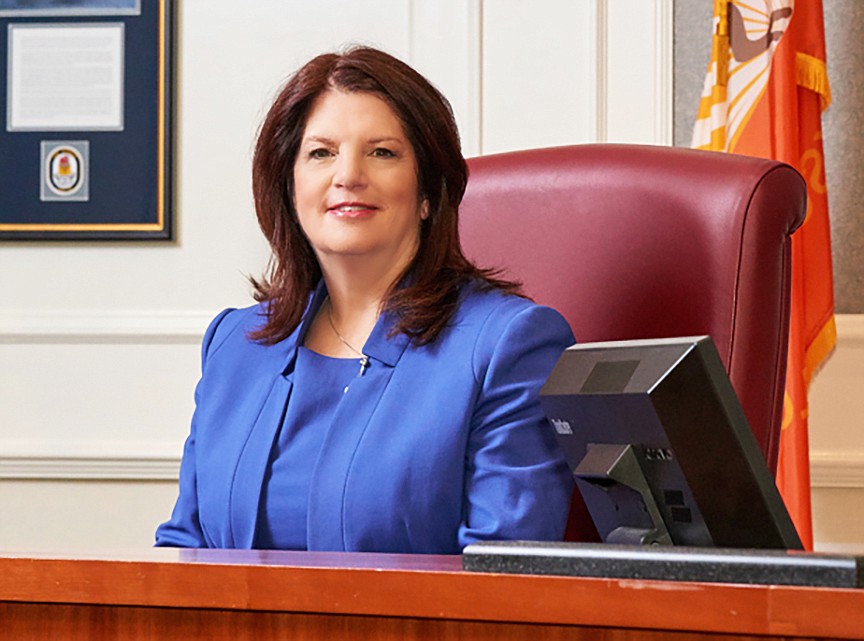
Jacksonville City Council member Lori Boyer was selected as the Downtown Investment Authority’s next CEO.
The DIA board’s unanimous decision Wednesday was delivered after three hours of public interviews at City Hall with Boyer and two other finalists for the job.
Also interviewed was Gregory Flisram, senior vice president of the Economic Development Corp. of Kansas City and Kevin Hanna, a private developer and former New Orleans Redevelopment Authority real estate development director.
Boyer will now enter a 30- to 60-day contract negotiation with the DIA board.
Boyer, who is term-limited, will leave the City Council on June 30.
She will replace interim CEO Brian Hughes, who has filled the position since October when CEO Aundra Wallace left to become president of JAXUSA Partnership, the economic development division of JAX Chamber. Hughes also is Mayor Lenny Curry’s chief of staff.
Boyer’s selection came down to her knowledge of Downtown Jacksonville — legislation Boyer authored simplifying zoning and redrafting Downtown overlay districts was approved by the City Council on Wednesday — and her experience with projects already under development.
DIA board member Carol Worsham asked Boyer what her top three initiatives would be as CEO.
Reorganizing DIA staff and filling vacant positions, Boyer said, would be one of her first orders of business.
In its 2019-20 administrative budget, the DIA board eliminated a vacant planner and market analyst position. It created jobs for a communications coordinator and an accountant.
However, Hughes told the board that there is leeway in the budget for the new CEO to examine staffing and create their own team.
Simultaneously, Boyer said she will develop market analysis material that includes available city-owned property and make it easily accessible to developers outside the Jacksonville market.
A high priority for Boyer is a continued residential push Downtown, specifically developing “the missing middle” of market-rate rental and for-sale housing options.
Boyer said the DIA needs to work on helping to fill developer funding gaps and to create incentives for housing categories typically ineligible for tax incentives, like affordable and workforce development.
“I’m an absolute believer in residential first,” she said.
“Talent pools look for vibrant downtowns. If we can get to 10,000 residents Downtown, we have both incentivized and created that enhanced talent pool to recruit more jobs and more businesses to the city,” Boyer said. “It’s also that 10,000 resident (number) that’s going to support the development of the grocery store, development of the CVS Downtown, support the growth of entertainment, bars and restaurants Downtown.”
With more people living Downtown, Boyer also wants an emphasis on public infrastructure, like parks and amenities.
Although the board was in agreement that both of the other finalists could perform as CEO, other factors pushed the DIA toward Boyer.
Hanna, who was a finalist alongside Wallace for the position in 2013, has several private development projects in various stages. Board members worried he wouldn’t be able to pull himself away from his business. Hanna’s emphasis on public safety in tandem with Downtown development appealed to board members.
Flisram’s focus on developing a better marketing plan for Jacksonville targeted at outside developers stood out in his interview.
But the board expressed concern about his lack of experience with budgetary details.
The board raised concerns about Boyer’s hyperfocus on Jacksonville and her lack of developer contacts outside the city.
“I don’t think we’ll find someone who is more passionate about Jacksonville,” board member Todd Froats said of Boyer, but he liked the outside perspectives brought by Hanna and Flisram.
Although supportive of Boyer, board Vice Chair Craig Gibbs agreed with Froats, but said he feels it’s something Boyer can overcome.
“One of the weaknesses she articulated was her lack of (experience) with other cities. She’s very Jacksonville-centric. If we’re going to be a world-class city, that may be a handicap.”
Boyer, who is the council’s liaison to the DIA, overcame an ethical hurdle to be named CEO.
An opinion issued in April by the Florida Commission on Ethics says a former City Council member is not allowed to represent a group or the city’s interests before the council for two years following their term.
In her interview, Boyer said DIA staff would be used to address the City Council for routine issues, while an outside lobbyist could be hired to represent DIA interests with elected officials for larger development deals.
Boyer also suggested for larger projects, Mayor Lenny Curry’s office or DIA board members could take a more active role in briefing the City Council.
“True to form, she answered some tough questions very well. The communications issue is the proverbial elephant in the room,” DIA board member Oliver Barakat said following Boyer’s interview. “It’s two years. My sense is, her experience and her flat learning curve compared to the other two candidates washes out the communications issue, he said. “We’re in uncharted ground with that. To me, she comes with so many other strengths.”